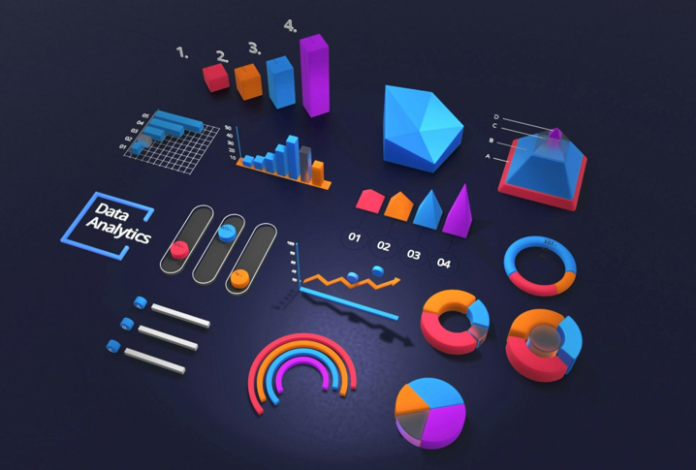Photo by Choong Deng Xiang on Unsplash
Artificial intelligence helps businesses anticipate their customers’ needs and desires along with providing solutions to problems before they even appear. Such an approach, also known as predictive analytics, boosts confidentiality in a company, improves satisfaction, and makes the customer journey smooth. In the modern market, anticipating client behavior can assist with developing loyal clients and being ahead of the competition. Both result in the profitability of a firm.
Understanding Predictive Analytics
Predictive analytics uses historical data and based on it helps to predict some future behaviors. With its help, you can focus on boosting your customer satisfaction. Some other data sources that predictive analytics uses are interaction details, customer behavior, and purchase history. Some of the key concepts related to this AI-powered tool are:
- Data collection: Using the above-mentioned data sources, you can collect enough information to train predictive analytics algorithms.
- Data analysis: By the means of available algorithms, data and patterns are analyzed.
- Forecasting: Through the use of previously identified patterns, clients’ future behavior becomes evident. This is a useful source of information that can help all future actions aimed at addressing customers’ needs and desires.
One critical factor in the success of predictive analytics is data quality. Clean, accurate, and comprehensive data is the foundation of reliable forecasts. The models should also take into account data privacy regulations, such as GDPR and CCPA. This will ensure ethical approach and trust of your customers.
Anticipating Customer Needs
Generative AI for customer support helps businesses develop personalized solutions and responses to various inquiries. It makes all interactions with people proactive instead of reactive. Time is money, so if your company is quicker than all your competitors, it means that you have access to a bigger and better share of a market, therefore benefiting from higher returns. Loyalty and satisfaction are intangible aspects of predictive analytics, but in the long term, they bring enormous benefits.
Here are some of the companies that have benefited from AI proactive support:
- Starbucks: The company uses predictive analytics in marketing. The customers of this company receive personalized offers and discounts based on their previous purchasing history or visits to Starbucks’ cafes. To do that, a mobile app is used. Moreover, such approach helps win-back clients that due to different reasons chose Starbucks’ competitors. The method has a positive impact on sales and customer experience.
- Amazon: This corporation operates a huge marketplace, so to push customers to purchase something, predictive analytics is used. Through the analysis of browsing history and previous purchases, Amazon sends personal recommendations and suggests similar products, which leads to increased sales and customer satisfaction. People feel understood and valued and develop loyalty to this business.
- Netflix: This streaming platform uses machine learning to make analysis of movies and TV shows that clients watch, their behavior, and preferences. The firm sends personalized content recommendations, thus engaging the audience. By doing this, Netflix pushes customers to renew their subscriptions, as viewers always have something to watch and be entertained.
Predictive analytics helps across various industries, including also healthcare and finance. For example, in healthcare, analytics can predict patient readmission risks suggesting implementing preventive measures. In financial sector, banks use analytics to assess credit risk and detect fraudulent activities.
Resolving Issues Before They Arise
AI forecasting and analytics can anticipate potential issues and provide preemptive solutions, thus decreasing the possibility of client complaints. This is a game-changer, as it significantly increases the satisfaction of clients. To prove that statement, some practical case studies can be analyzed:
- McKinsey: The company uses predictive analytics to flag some potential issues, such as higher-than-usual credit card bills, and suggests solutions – payment plans – before client calls. These new customer support trends are welcomed by people, as they reduce cases of frustration and anxiety.
- Volvo: The firm has developed its Early Warning System on the basis of predictive analytics and machine learning to weekly analyze millions of events. The system is dedicated to maintenance of the vehicles, namely suggesting replacement plans or recommending service centers to drive to receive assistance. Such an approach increases safety, as owners of Volvo vehicles feel protected and can rely on the manufacturer of their cars.
- Southwest Airlines: This case is similar to that of Volvo but with a slight difference. The airline uses predictive analytics to ensure the maintenance of its airplanes. To do this, data is taken from different sensors, reparation procedures are planned, and needed parts are ordered. Again, safety is a priority, as Southwest Airlines moves plenty of passengers and cargo each day. Finally, the firm minimizes flight delays and cancellations, hence improving the customer experience.
Proactive issue resolution powered by predictive analytics increases customer satisfaction and also reduces operational costs. For example, in manufacturing, predictive analytics can help companies monitor equipment performance and identify signs of wear. As a result, they will proactively schedule repairs before breakdowns occur. This minimizes downtime and improves productivity, bringing benefits both for the company and its clients.
Enhancing the Customer Journey
The aim of predictive analytics is to ensure an enjoyable and seamless experience of clients. The use of this tool prevents the appearance of potential struggles and improves the efficiency of customer support work. It also saves time and efforts, demonstrating that a firm values its customers and wants to provide the best service to them. From personalized recommendations to automated assistance, predictive analytics makes interactions engaging and relevant. In the end, a deeper connection is established, leading to repeated purchases and loyalty.
Final Thoughts
AI and predictive analytics transform the business world, enhance the customer journey, and drive business development and growth. By creating data-driven and personalized solutions, firms can enhance customer expectations and ensure loyalty.







